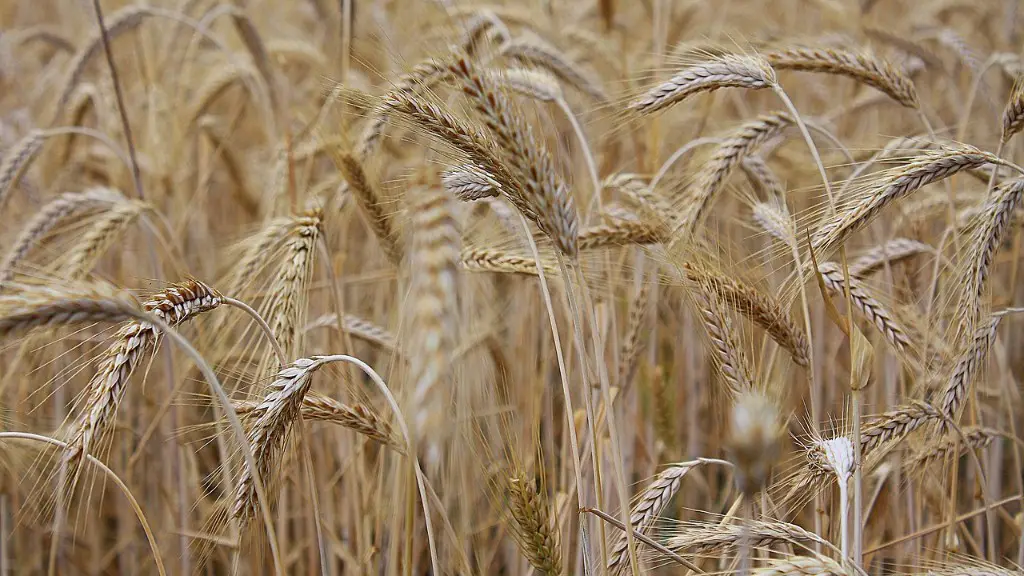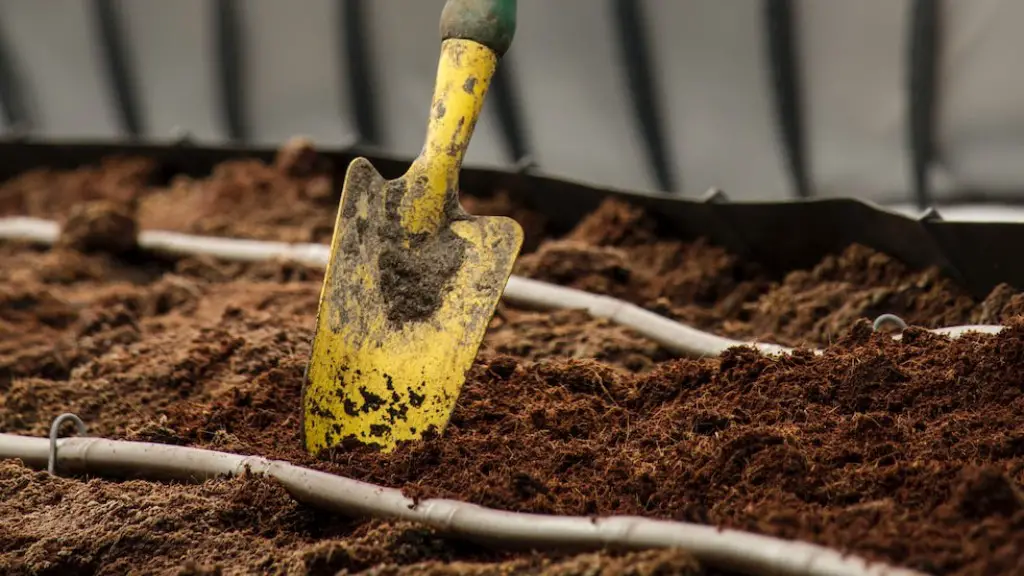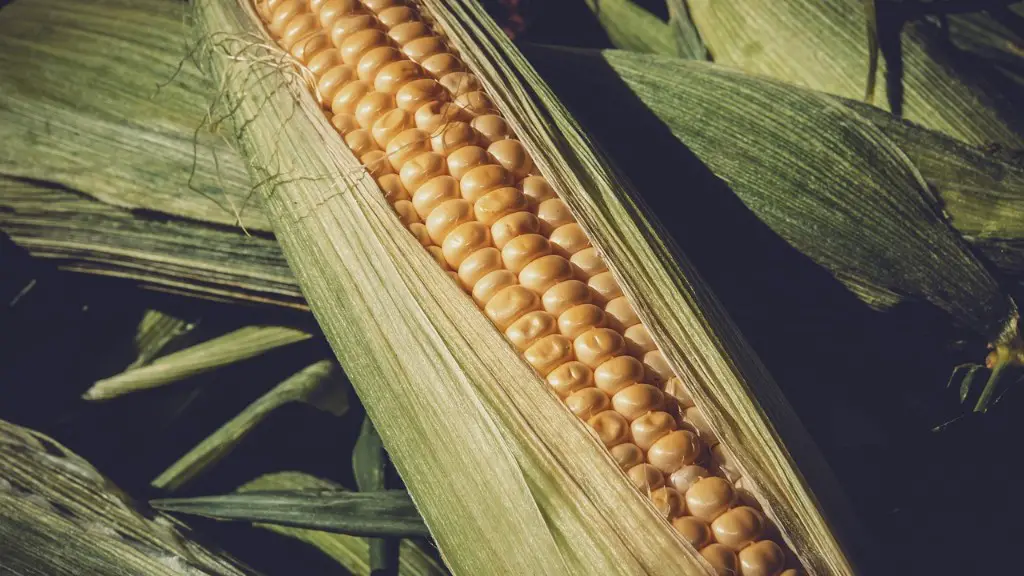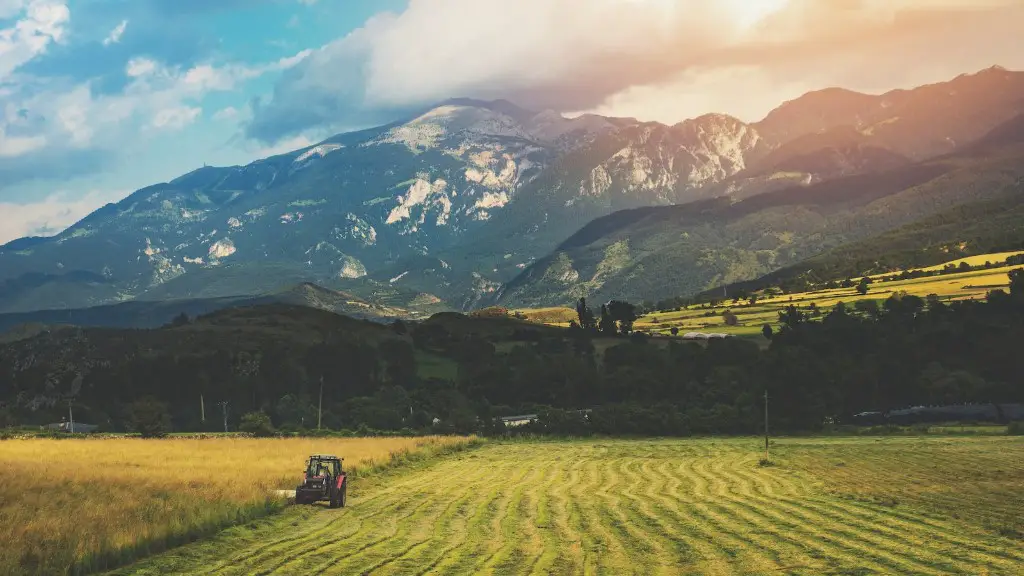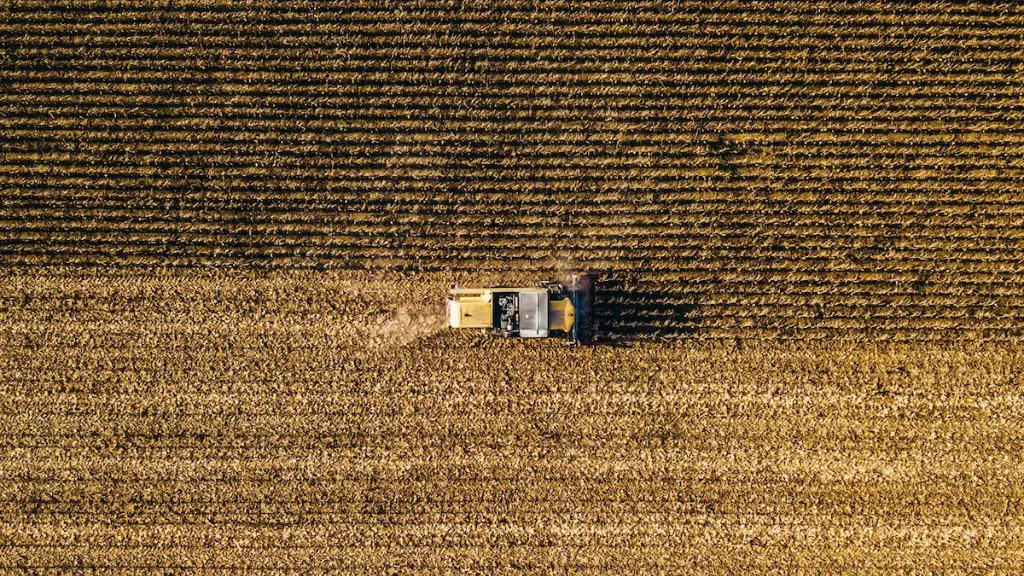While agriculture is often thought of as a rural activity, many cities are now home to a variety of urban agriculture initiatives. These initiatives can take many forms, from community gardens to rooftop farms. One way that urban agriculture can help to conserve water resources is by reducing the need for irrigation. Properly managed urban agriculture projects can also help to reduce runoff and improve water quality.
In a time where water resources are under increasing strain, any effort to conserve water is crucial. One way that urban agriculture can help conserve water is by using techniques that minimize water loss through evaporation, such as mulching. Other methods of water conservation in urban agriculture include rainwater harvesting and the use of gray water from household sink and shower runoff. Collectively, these methods of water conservation can have a significant impact on preserving water resources.
How does agriculture conserve water?
Irrigation pipelines are an efficient way to transport water to fields and crops. By making improvements to their irrigation systems, farmers can conserve water and reduce their water usage.
Urban agriculture is a great way to improve the environment, economy, and social benefits of the surrounding community. By reducing transportation costs, reducing runoff associated with heavy rainfall, and improving air quality, urban agriculture can have a positive impact on the community.
How does agriculture affect water usage
It is estimated that agriculture accounts for approximately 80% of the nation’s water use. In agriculture, water is used to grow fruits, vegetables, and raise livestock. Water is also used in agriculture for irrigation, the application of pesticides and fertilizers, and frost control.
Water is a vital component of farming and natural ecosystems. Inefficiently managing the moisture in soil can lead to poor crop yields and increased runoff. In cropland, poor yields could be attributed to an insufficiency of soil moisture instead of inadequate rainfall.
There are many ways to manage the moisture in soil more efficiently, such as using mulch, conserving water through irrigation, and planting drought-resistant crops. By taking these measures, farmers can help to ensure that their crops will thrive even in times of drought.
What are 3 ways that farmers can conserve water?
Water is one of the most important things on a farm. Not only do crops and livestock need it to survive, but it is also used for a variety of other tasks such as cleaning and irrigation. There are many ways to save water on a farm, but here are five of the most cheap and effective ways to do so:
1. Mulch: Mulching is a great way to reduce evaporation and help the soil retain moisture.
2. Irrigate early morning or dusk: Watering early in the morning or at dusk helps to reduce evaporation.
3. Avoid hit and miss watering: Watering in a way that hits and misses the plants can actually use more water than if you just water the plants directly.
4. Don’t over-water: Over-watering can actually damage plants and lead to more water being wasted.
5. Check for leaks and damage: Leaks and damage can lead to water being wasted, so it is important to check for them regularly.
Farmers can reduce NPS pollution from irrigation by improving water use efficiency. They can measure actual crop needs and apply only the amount of water required. Farmers may also choose to convert irrigation systems to higher efficiency equipment. These changes will help reduce the amount of water and pollutants that runoff from farms and into our waterways.
What are 5 benefits of urban farming?
Urban farming is a growing trend that has many benefits. It can help boost the local economy, create edible landscapes, promote healthy communities, and “green” your city. Urban farming is a great way to get involved in the local food movement and make a positive impact in your community.
Urban agriculture initiatives are important for developing sustainable and resilient food systems. By transforming unused and underutilized space into urban farms, we are transforming the landscape of our cities and giving it an edible value. This not only provides fresh food for our cities, but also creates jobs and improves the local economy.
What are some advantages of urban agriculture
1. Urban agriculture provides food security for low income groups.
2. It creates employment and training opportunities for disadvantaged and marginalised groups.
3. It increases access to fresh fruit and vegetables.
4. It reduces environmental impacts through less transport, packaging and food waste.
The depletion of water availability in soils can have significant impacts on crops and livestock productivity. During drought conditions, surface and groundwater supplies may decline, affecting water availability and increasing costs to access water for crop or forage irrigation and watering livestock. These impacts can lead to significant economic losses for farmers and ranchers.
How do farmers solve water problems?
Aquaponics is a great way to combine two different agricultural techniques in order to create a more efficient method of growing plants and fish. This system often uses less water than traditional farming methods, which can help to conserve water resources. Aquaponics can be used to produce food for people or animals, or for ornamental purposes.
While the adoption of drought-resistant crops and the use of organic fertilizers and mulch are both effective approaches to water conservation in agriculture, they each have their own unique benefits. Drought-resistant crops require less water to grow and thrive, and organic fertilizers and mulch help to reduce evaporation and retain moisture in the soil. When used together, these two approaches can help to significantly reduce the amount of water used in agriculture, and help to preserve our precious water resources.
What are 3 ways we can protect and conserve our water resources
Water is an essential part of our daily lives and it is important that we conserve it. Here are some tips on how to conserve water:
-Never use your toilet as a waste basket.
-Do not let the water run while shaving or brushing teeth.
-Take short showers instead of tub baths. If you must use a tub, close the drain before turning on the water and fill the tub only half full.
Water conservation is a critical issue in many parts of the world and it is only going to become more important in the years to come. There are a number of things that we can all do to help conserve water and help alleviate the impending shortages. Some of the things we can do include:
-Checking our toilets for leaks
-Stopping the use of toilets as an ashtray or wastebasket
-Putting a plastic bottle in our toilet tank
-Taking shorter showers
-Installing water-saving shower heads or flow restrictors
-Taking baths
How can agricultural practices reduce water pollution?
Fertilizers are important for keeping plants healthy, but too much fertilizer can end up in water bodies and cause environmental problems. Applying fertilizers in the proper amount, at the right time of year and with the right method can significantly reduce how much fertilizer reaches water bodies. Keeping animals and their waste out of streams keeps nitrogen and phosphorus out of the water and protects stream banks.
Urban gardening is a great way to get fresh produce that is healthy and affordable. Additionally, it promotes income production and small business expansion. One of the key benefits of urban gardening is that it makes fresh food more affordable. However, contamination is one of the concerns with urban gardening. Maintenance costs can also be a concern.
Final Words
One way that urban agriculture can help conserve water resources is by using irrigation systems that are more efficient in delivering water to crops. For example, drip irrigation systems can help reduce water waste by delivering water only to the roots of plants. Another way to conserve water resources is to choose crops that are tolerant of drought conditions.
Urban agriculture can help conserve water resources by reducing the amount of water that is used to water lawns and gardens. Urban agriculture can also help to reduce the amount of runoff from impermeable surfaces, and can help to recharge groundwater aquifers.
